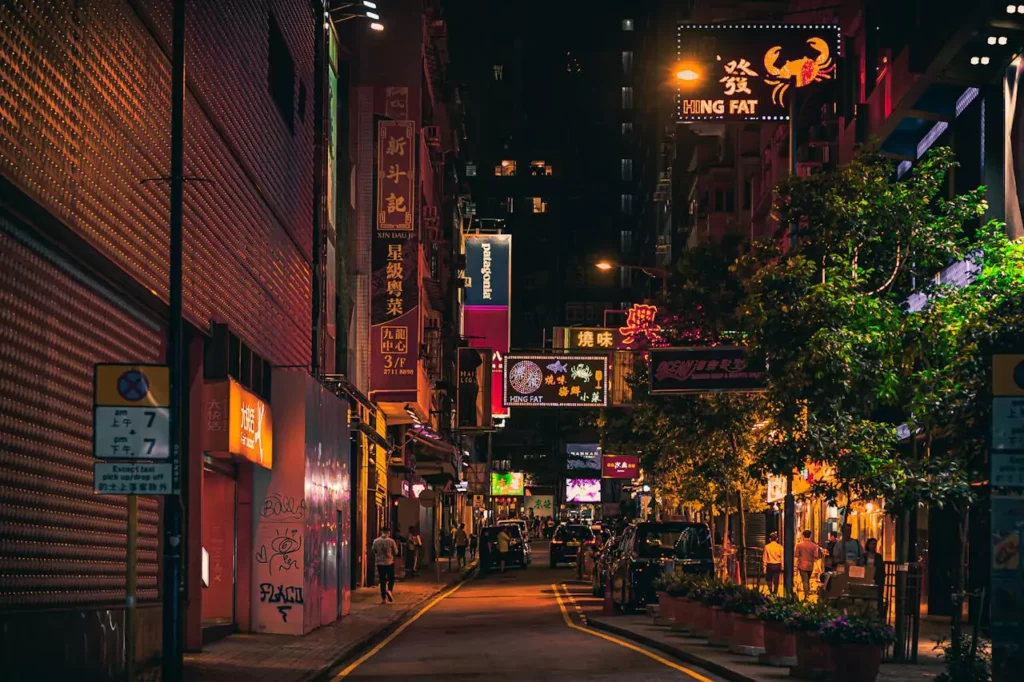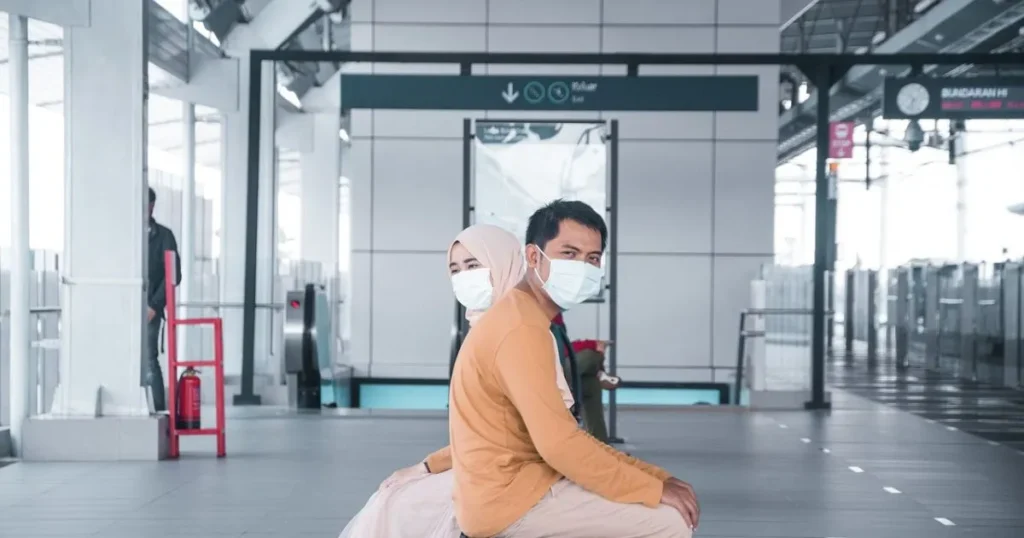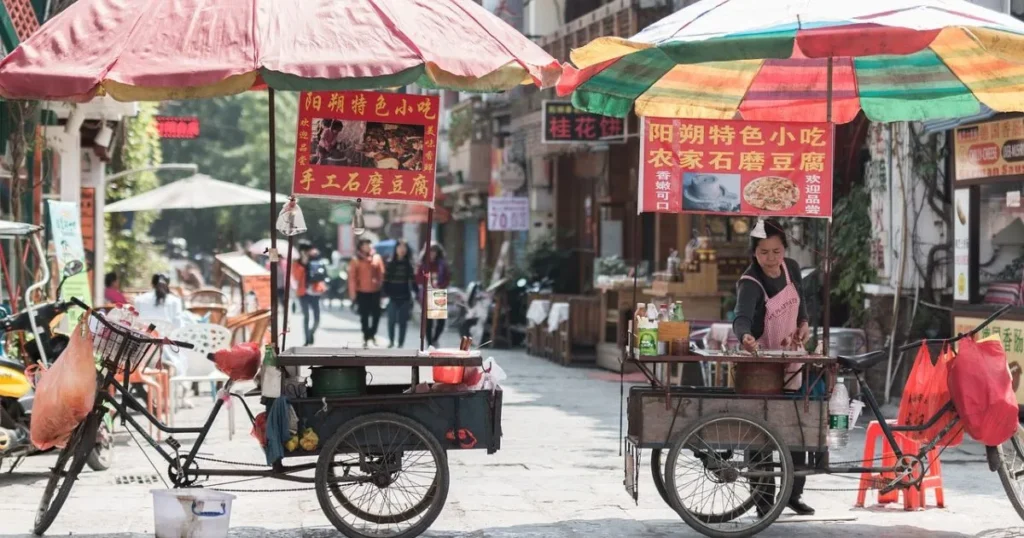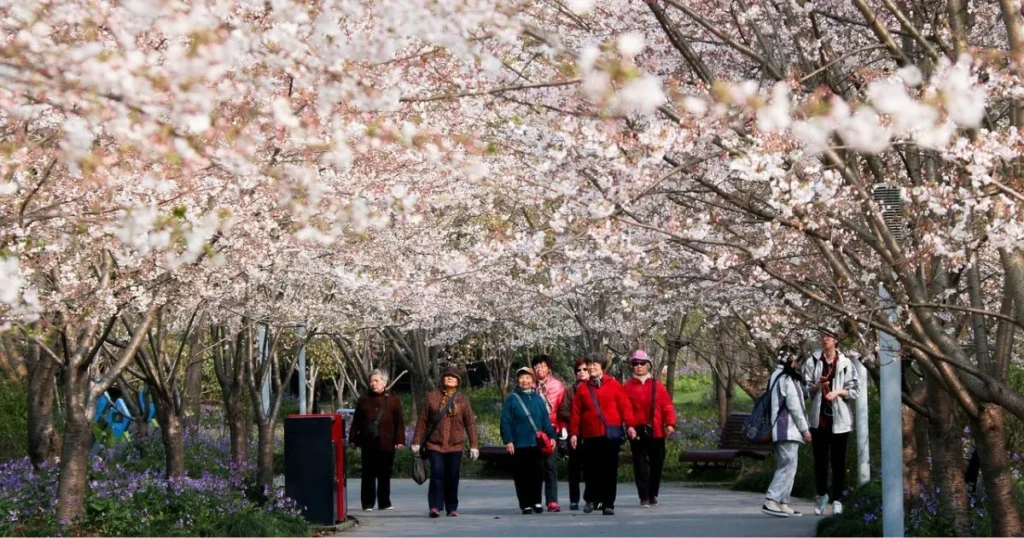Planning an international trip always brings excitement and anticipation, but one question that often arises is, “Is it safe to travel to China?” As one of the world’s most captivating destinations, China offers an incredible mix of ancient history, modern innovation, and stunning landscapes. However, like any destination, it’s important to be well-informed about the safety conditions before embarking on your journey. In this article, you’ll get a comprehensive review of current safety factors, health guidelines, and practical travel tips to help you plan with confidence.
Table of Contents
Overview of Safety in China for Tourists
China is widely recognized as one of the safest countries for international visitors. With a low crime rate in urban centers and a strong emphasis on public security, you’ll find that most tourists experience a trouble-free visit.
Key Points About Safety
- Low Crime Rates: Major cities such as Beijing, Shanghai, and Guangzhou are known for their low levels of violent crime. While petty crimes like pickpocketing can occur, especially in crowded areas, these are relatively rare compared to other popular destinations.
- Efficient Law Enforcement: China’s robust law enforcement system is visible in tourist-heavy zones, ensuring safety and assistance when needed.
- Cultural Respect for Order: Chinese society places a strong emphasis on maintaining harmony and order, which reflects in its safety for visitors.
While China’s cities are generally safe, it’s still important to stay vigilant, especially in less-populated rural areas or regions unfamiliar to foreign tourists.

Assessing the Current Political and Social Climate
When planning your trip to China, understanding the broader political and social environment can help you make informed decisions and navigate the country with ease. China’s social and political framework is uniquely structured, contributing to its reputation as a stable and secure travel destination. Here’s what you need to know.
Political Stability
China stands out for its political stability, rooted in a centralized governance system that prioritizes order and security. Unlike some regions that experience frequent political upheavals, China maintains a controlled and predictable environment. Public protests and large-scale disruptions are rare, thanks to strict regulations and governance.
This stability is particularly reassuring for tourists, as it minimizes the likelihood of encountering unexpected disruptions during your travels. However, it’s always a good idea to stay informed about the latest travel advisories, especially for certain regions. While most of the country is accessible, some areas may have specific restrictions or require additional permits, particularly if you plan to visit regions like Tibet or Xinjiang.
Pro Tip: Keep an eye on updates from your country’s embassy or consulate before your trip to ensure that you are aware of any temporary restrictions or safety concerns in specific areas.
Public Safety Standards
China has invested heavily in creating a robust public safety infrastructure. In major cities like Beijing, Shanghai, and Shenzhen, you’ll notice an omnipresent sense of security:
- Visible Police Presence: Policemen patrol tourist areas, transportation hubs, and public spaces, ensuring a safe environment for visitors.
- Surveillance Systems: With one of the most advanced surveillance networks globally, public areas are well-monitored, deterring criminal activity and enabling quick responses to potential issues.
While urban areas benefit from this advanced security infrastructure, rural regions operate on a smaller scale. Although less-policed and less technologically monitored, these areas are often peaceful, and locals are typically hospitable and welcoming to tourists.
Tip for Travelers: In rural areas, familiarize yourself with local customs and stay respectful of traditions to ensure a positive and safe experience.
Safety for Solo Travelers and Families
Whether you’re traveling alone or with loved ones, China provides a secure environment for all types of visitors.
- Solo Travelers: If you’re venturing out solo, you’ll find that cities are designed to be both tourist-friendly and safe. Well-lit streets, organized public transportation, and bustling neighborhoods mean you can explore even at night with minimal concerns. For women traveling alone, the absence of widespread harassment and the visible security presence contribute to an added sense of reassurance.
- Families: China’s emphasis on family culture is reflected in its attractions and amenities. From well-maintained parks and zoos to kid-friendly accommodations and restaurants, families can enjoy a comfortable and enjoyable experience. Most tourist destinations cater to children with facilities like stroller rentals, play areas, and interactive exhibits.
By understanding the political and social climate in China, you’ll be better equipped to make the most of your visit. Whether you’re traveling solo or with family, the country’s stability and focus on safety create an environment where you can explore with peace of mind. Just remember to stay updated on any specific travel advisories and plan accordingly.

Understanding Health and Medical Safety in China
When traveling abroad, health and medical safety should always be a top priority. China, as a popular travel destination, has significantly improved its healthcare system over the years. However, understanding the country’s healthcare landscape and taking necessary precautions will ensure your trip is both enjoyable and worry-free.
Health Guidelines for Travelers
Maintaining good health while traveling begins with preparation. China’s environment, cuisine, and healthcare system may differ from what you’re accustomed to, so it’s essential to plan ahead.
Vaccinations: Before your trip, consult your healthcare provider to ensure your routine vaccinations are up to date. Commonly recommended vaccinations for China include:
- Hepatitis A and B: Protects against diseases transmitted through contaminated food, water, or blood.
- Typhoid: Highly recommended for travelers venturing into countryside regions or sampling local street cuisine.
- Other Vaccines: Depending on the season and your itinerary, vaccines for Influenza, Japanese Encephalitis, or Rabies might also be recommended.
Food and Water Safety:
- Tap water in China is generally not potable. Opt for bottled or boiled water, as it is easily accessible.
- Be cautious when consuming raw or undercooked food, especially seafood and meat.
- Choose well-reviewed restaurants and avoid street vendors with questionable hygiene practices.
Traveler Tip: Carry a portable water purification device or water-purifying tablets if you’re traveling to remote areas.
Managing Emergencies: Access to Healthcare
China’s healthcare system is modern and efficient in urban areas, though rural regions may still have limited facilities. Knowing what to expect and how to access medical help can make a significant difference in an emergency.
Healthcare Facilities:
- Major cities like Beijing, Shanghai, and Guangzhou have internationally accredited hospitals and clinics with English-speaking staff. These facilities cater to both locals and foreigners, often providing high-quality care.
- In rural areas, healthcare services may not meet international standards, and communication could be challenging due to language barriers.
Travel Insurance: Comprehensive travel insurance is a must when visiting China. Opt for a plan that covers:
- Emergency Medical Treatment: To cover costs at private hospitals, which can be expensive.
- Medical Evacuation: For transportation to a better-equipped facility in the event of serious illness or injury.
- Repatriation: To ensure you can return home safely in case of a major health issue.
Traveler Tip: Research hospitals near your accommodations in advance and save emergency numbers on your phone for quick access.
COVID-19 Considerations
While much of the world has moved beyond strict pandemic protocols, China still implements health measures in certain regions.
Current Guidelines:
- Most entry restrictions have been lifted, but some areas may still require temperature checks, health declarations, or the use of masks in public spaces.
- Random COVID-19 testing may be conducted at airports or train stations.
Stay Updated: Regulations can change quickly, so check the latest travel advisories and the Chinese government’s official guidelines before your trip.
Preparedness: Carry a small health kit with essentials like face masks, hand sanitizer, and a thermometer to ensure you’re prepared for any health-related requirements during your travels.
Understanding and preparing for health and medical safety in China will give you peace of mind during your visit. By following recommended guidelines, staying vigilant about food and water safety, and securing comprehensive travel insurance, you can focus on enjoying everything this incredible destination has to offer.

Navigating Cultural Norms and Local Laws
Traveling to China is a rewarding experience, offering insight into one of the world’s oldest civilizations. However, understanding and respecting cultural norms and local laws is crucial for a smooth and enjoyable trip. By aligning with societal expectations and legal requirements, you’ll not only show respect to your hosts but also ensure a trouble-free experience.
Cultural Awareness
China’s traditions and cultural values are deeply rooted in its history, shaping how people interact and behave in public. As a visitor, adapting to these cultural nuances will help you connect with locals and avoid unintended offenses.
Interpersonal Etiquette:
- Maintaining “face” (mianzi) is a critical concept in Chinese culture, emphasizing respect, dignity, and harmony. Avoid public displays of anger, criticism, or confrontation, as these can cause embarrassment and strain relationships.
- Show appreciation through polite language and gestures, such as thanking someone for their assistance or complimenting their hospitality.
Body Language:
- Handshakes: A handshake is a common and polite greeting in formal settings, often accompanied by a slight nod.
- Gestures to Avoid: Refrain from patting someone on the back, pointing with your finger, or using your feet to gesture, as these actions may be considered rude or overly casual.
- Personal Space: While Chinese cities can be crowded, maintaining a respectful amount of personal space when engaging in one-on-one conversations is appreciated.
Tip: Learning a few basic Mandarin phrases, such as “ni hao” (hello) or “xie xie” (thank you), can go a long way in building rapport with locals.
Laws and Regulations for Travelers
China enforces a strict legal framework that travelers must adhere to, and unfamiliarity with local laws is not considered an excuse. Being aware of these rules can help you avoid misunderstandings or legal troubles during your visit.
Photography:
- While capturing China’s breathtaking landmarks is encouraged, avoid photographing sensitive areas such as military bases, government buildings, and police officers. Doing so can lead to confiscation of equipment or legal repercussions.
- Always ask for permission before photographing people, particularly in rural areas where customs may differ.
Internet Use:
- China has strict internet regulations, often referred to as the “Great Firewall.” Popular services such as Google, Facebook, YouTube, and WhatsApp are blocked. To access these, you’ll need a reliable VPN (Virtual Private Network) installed before entering the country.
- Be mindful of your online activity, as certain topics or websites may be considered politically sensitive and could draw unwanted attention.
Public Behavior:
- Avoid loud or disruptive behavior in public spaces, as it’s frowned upon and may attract unwelcome attention.
- Spitting and littering are prohibited in many areas and can result in fines.
- Respect queueing norms, especially in places like train stations and tourist attractions, where cutting in line is considered impolite.
Tip: Familiarize yourself with local laws and customs related to items such as medication, currency exchange, and prohibited goods to avoid complications at customs.
Understanding cultural norms and local laws in China is an essential part of your travel preparation. By respecting these guidelines, you’ll not only enhance your own experience but also show appreciation for the rich culture and hospitality of the people you meet along the way. This attention to detail will ensure a smooth, respectful, and enriching journey through one of the world’s most vibrant destinations.

Transportation Safety Across China
Navigating a country as large and diverse as China might seem daunting, but its transportation systems are designed for efficiency, reliability, and safety. From urban commutes to cross-country journeys, understanding your options and staying informed can help you travel confidently.
Urban Transport
China’s major cities boast highly developed public transportation networks that are both affordable and user-friendly. Whether you’re navigating the bustling streets of Beijing or exploring Shanghai’s modern skyline, getting around is straightforward.
Subways and Buses:
- The subway systems in cities like Beijing, Shanghai, Guangzhou, and Shenzhen are some of the most advanced in the world. They are clean, punctual, and clearly marked in both Chinese and English.
- City buses provide extensive coverage but can be crowded during peak hours. Mobile payment apps like WeChat or Alipay are often used, so having access to these platforms simplifies travel.
Ride-Sharing Services:
- Apps like DiDi, the Chinese equivalent of Uber, offer a safe and convenient way to travel. You can select options ranging from budget-friendly shared rides to premium services.
- These apps provide an extra layer of security by tracking your trip, allowing you to share your ride details with friends or family for added peace of mind.
Traveler Tip: Download the city’s subway map and a translation app to make urban travel smoother, especially if you don’t speak Mandarin.
Long-Distance Travel
China’s vast geography calls for efficient and well-connected long-distance transportation systems, which include high-speed trains and domestic flights.
High-Speed Trains:
- China’s high-speed rail network is one of the world’s safest and most comprehensive, connecting major cities and regions seamlessly.
- Trains are punctual, clean, and equipped with modern amenities, including comfortable seating and onboard dining. Options range from second-class seats to luxurious business-class cabins.
- Booking tickets online in advance is recommended, especially during peak travel seasons like the Chinese New Year or summer holidays.
Domestic Flights:
- Flying is an excellent option for covering long distances quickly. Major airlines like Air China, China Southern, and China Eastern maintain strong safety records.
- Airports in cities like Beijing, Guangzhou, and Chengdu are modern and well-equipped, ensuring smooth travel experiences.
- Always check baggage restrictions and arrive early to navigate security checks, which can be thorough.
Traveler Tip: If you plan to travel extensively, consider obtaining a reloadable transportation card or purchasing tickets through apps that cater to international users, such as Trip.com.
Road Safety
For travelers planning to explore regions beyond public transportation routes, understanding road safety in China is essential.
Driving:
- Renting a car is uncommon for foreign tourists, as Chinese traffic rules and licensing requirements can be complex. Congestion in urban areas and unfamiliar road signs may also pose challenges.
- Taxis and chauffeured services are more practical options for road travel. Ensure taxis are licensed and metered, and avoid unmarked vehicles.
Pedestrian Safety:
- Pedestrian crossings are common, but drivers may not always yield. Cross streets with caution, especially in busy areas where traffic rules may not be strictly observed.
- Use designated pedestrian bridges or underpasses in large cities to avoid busy intersections.
Traveler Tip: When walking in crowded urban areas, keep your belongings secure to avoid pickpocketing, though such incidents are relatively rare in China.
China’s transportation systems are designed to accommodate its vast population while ensuring safety and convenience for travelers. From state-of-the-art high-speed trains to efficient urban subways, navigating the country has never been easier. By familiarizing yourself with these systems and taking basic precautions, you’ll enjoy a hassle-free travel experience, no matter where your adventures take you.

Environmental and Natural Considerations
China’s vast and varied geography offers travelers incredible natural beauty, but it also presents some environmental challenges. Understanding the country’s climate, potential natural hazards, and air quality will help you prepare for a safe and enjoyable journey.
Weather and Natural Disasters
China’s size spans diverse climates, ranging from snowy winters in the north to tropical weather in the south. These variations can influence your travel plans and preparations.
Seasonal Variations:
- Northern China: Winters in northern regions like Beijing and Harbin are cold and dry, with temperatures often dropping well below freezing. These areas are best visited during spring or autumn when the weather is milder.
- Southern China: Southern provinces, including Guangdong and Guangxi, experience hot summers and heavy rainfall during the monsoon season, typically from May to September.
- Western China: Areas like Xinjiang and Tibet have an arid, high-altitude climate, with dramatic temperature fluctuations between day and night.
Preparedness for Natural Events:
- While China’s infrastructure is designed to handle most weather-related challenges, occasional natural disasters can occur.
- Earthquakes: Western provinces like Sichuan are more prone to seismic activity. Familiarize yourself with earthquake safety measures if you’re traveling to these areas.
- Typhoons: Coastal regions in the east and southeast, including Shanghai and Hong Kong, may experience typhoons during summer and early autumn. Pay attention to weather forecasts and follow local advisories.
Traveler Tip: Keep a weather app handy and pack versatile clothing suitable for the region and season you’re visiting.
Air Quality and Pollution
Air quality in China can vary widely depending on the location and time of year. While rural and mountainous areas often boast clean, crisp air, urban centers may face occasional pollution issues.
Urban Pollution:
- Major cities like Beijing, Shanghai, and Tianjin occasionally experience high levels of air pollution, especially during winter months when coal heating is in use.
- Smog levels can be monitored using government alerts or third-party apps, allowing you to plan your outdoor activities accordingly.
Protective Measures:
- Face Masks: Carry high-quality masks (N95 or equivalent) if you’re traveling to areas prone to pollution. They can reduce exposure to airborne particles during smoggy days.
- Indoor Activities: On days with poor air quality, consider exploring indoor attractions like museums or shopping centers instead of outdoor sites.
Travel Apps:
- Apps like AirVisual and China Air Quality Index provide real-time updates on air quality in specific locations. This information helps you plan your day and make informed decisions about outdoor activities.
China’s dynamic environment is part of what makes it such an exciting destination. By staying informed about seasonal weather patterns, potential natural events, and air quality, you can better prepare for any challenges and fully appreciate the country’s breathtaking landscapes. With a little planning, you’ll navigate China’s natural and urban environments safely and confidently.

What Travelers Are Saying: Reviews and Experiences
Understanding the firsthand experiences of recent visitors to China can help you prepare for your journey. Insights from other travelers provide a balanced view of the highlights and challenges you might encounter.
Positive Experiences:
- Many travelers praise the warm and welcoming attitude of locals, particularly in urban centers and popular tourist destinations. From helpful gestures to genuine hospitality, visitors often remark on how easy it is to feel at home in China.
- The country’s efficient public transport systems, such as high-speed trains and metro networks, are frequently commended for their convenience and reliability.
- Iconic attractions like the Great Wall, the Terracotta Army, and Zhangjiajie National Forest Park leave travelers in awe of China’s rich history and stunning landscapes.
Cautions:
- Some visitors highlight the language barrier as a challenge, especially in rural areas where English is less commonly spoken. Using a translation app or carrying a phrasebook can help overcome language barriers.
- Navigating less-touristy areas might require more patience and preparation, as signage and resources in English can be scarce.
Practical Tips for Staying Safe in China
Planning ahead and staying cautious while on the ground will enhance your overall travel experience.
Pre-Travel Preparations
Documents:
- Ensure your passport has at least six months of validity and keep photocopies of it alongside your visa.
- Store these documents securely in your luggage or use a travel document organizer.
Travel Apps:
- Download essential apps for navigation (Google Maps or Baidu Maps), translation (Google Translate or Pleco), and transportation (DiDi for ride-hailing).
- Many apps, such as WeChat or Alipay, are widely used for payments and communication in China.
Emergency Contacts:
- Note down the contact details of your country’s embassy or consulate in major cities.
- Familiarize yourself with local emergency numbers, such as 110 for police and 120 for medical services.
On-the-Ground-Tips
Valuables:
- Use anti-theft backpacks with lockable zippers to keep your belongings secure, especially in crowded areas.
- Avoid displaying expensive items, such as jewelry or high-end electronics, to minimize the risk of theft.
Language Support:
- Learn a few basic Mandarin phrases like “Where is…” or “Thank you.” In emergencies, simple phrases can be a lifesaver.
- Keep a translation app handy for real-time assistance in communicating with locals.
FAQs About Travel Safety in China
1. Is it safe to visit rural China?
- Rural areas are generally safe, offering peaceful landscapes and a slower pace of life. However, healthcare access and infrastructure may be limited in remote regions. Keep basic first-aid supplies with you and plan your routes carefully.
2. Are there regions to avoid?
- Certain areas, such as Tibet or Xinjiang, may have additional travel restrictions or require special permits. Stay updated on government travel advisories and follow local regulations when visiting these regions.
3. How do I report an emergency?
- Use the following emergency numbers:
- 110 for police assistance
- 120 for medical emergencies
- 119 for fire services
Traveler Tip: If you experience language difficulties while reporting an emergency, ask hotel staff or locals for assistance—they are often willing to help.
Conclusion
China is an incredibly safe and rewarding destination, offering a blend of modern convenience and ancient charm. Whether you’re exploring its vibrant cities, immersing yourself in its natural beauty, or diving into its rich culture, there’s something for every traveler to enjoy.
By staying informed about current safety conditions, understanding cultural norms, and taking necessary health precautions, you can minimize risks and focus on enjoying your trip.
So, is it safe to travel to China? Absolutely! With a bit of preparation and mindfulness, you can embark on a journey that is as enriching as it is memorable.
Ready to explore China? Start planning today and set off on an adventure that promises to captivate and inspire you every step of the way!

